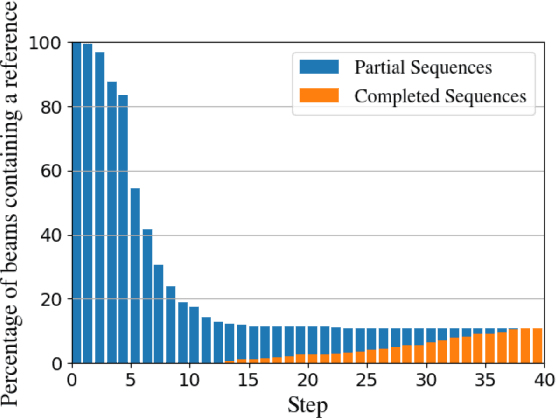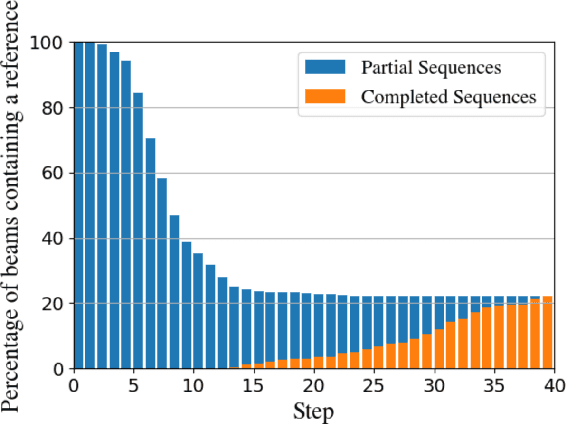Incremental Beam Manipulation for Natural Language Generation
Paper and Code
Feb 10, 2021



The performance of natural language generation systems has improved substantially with modern neural networks. At test time they typically employ beam search to avoid locally optimal but globally suboptimal predictions. However, due to model errors, a larger beam size can lead to deteriorating performance according to the evaluation metric. For this reason, it is common to rerank the output of beam search, but this relies on beam search to produce a good set of hypotheses, which limits the potential gains. Other alternatives to beam search require changes to the training of the model, which restricts their applicability compared to beam search. This paper proposes incremental beam manipulation, i.e. reranking the hypotheses in the beam during decoding instead of only at the end. This way, hypotheses that are unlikely to lead to a good final output are discarded, and in their place hypotheses that would have been ignored will be considered instead. Applying incremental beam manipulation leads to an improvement of 1.93 and 5.82 BLEU points over vanilla beam search for the test sets of the E2E and WebNLG challenges respectively. The proposed method also outperformed a strong reranker by 1.04 BLEU points on the E2E challenge, while being on par with it on the WebNLG dataset.
 Add to Chrome
Add to Chrome Add to Firefox
Add to Firefox Add to Edge
Add to Edge